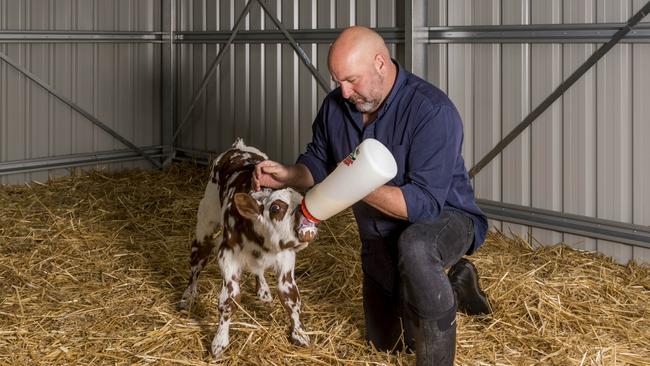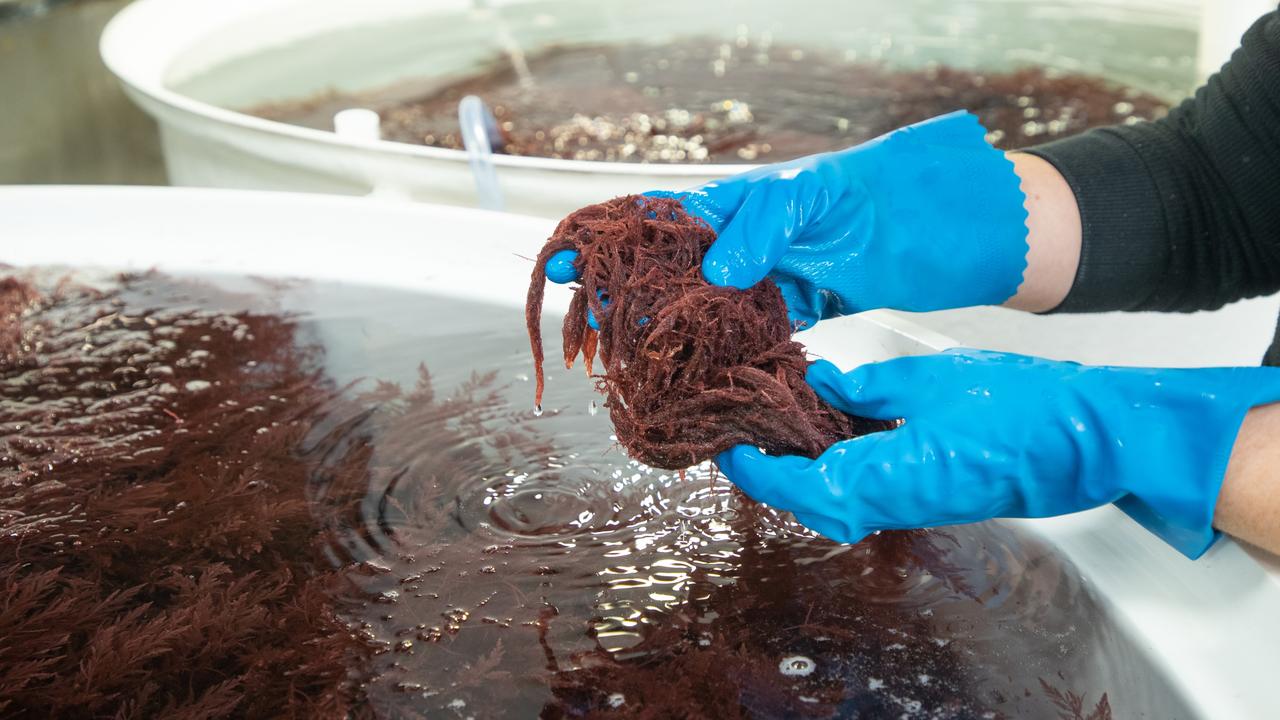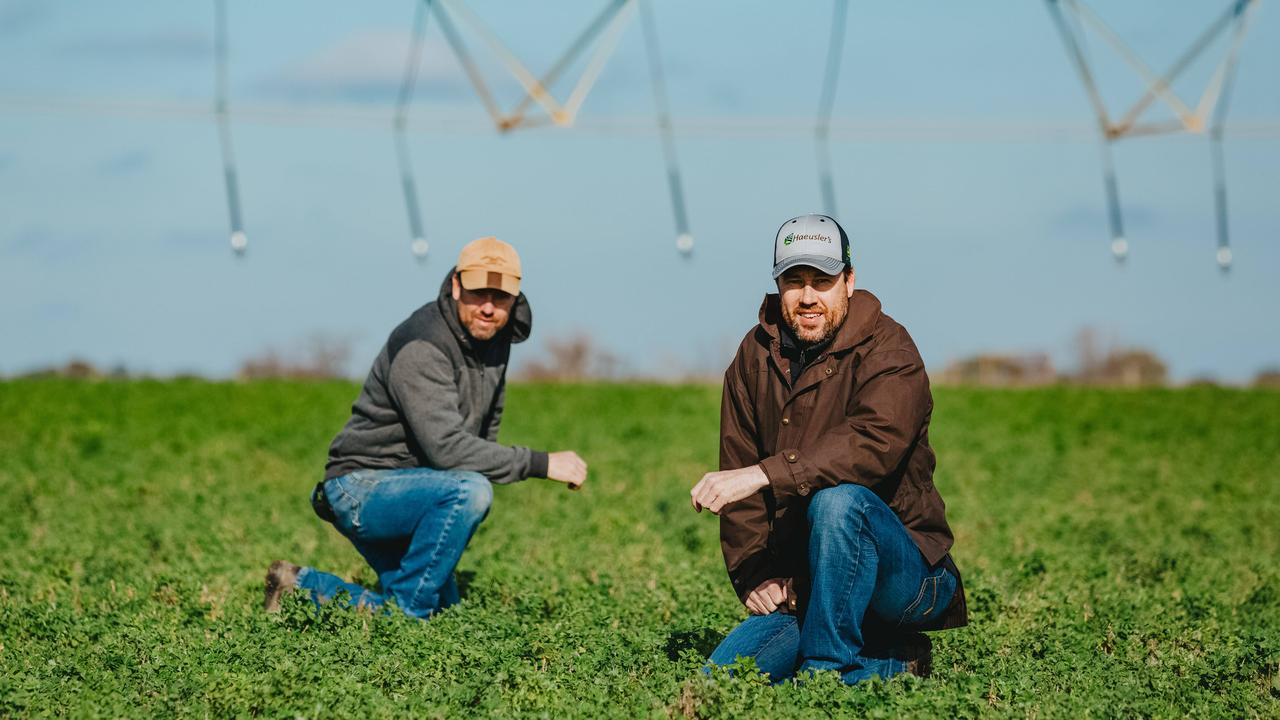Glen Huon Dairy Co started to supply milk to Bruny Island Cheese
CHEESEMAKER Nick Haddow has marched the paddock-to-plate route in reverse, taking on 55 cows and building a dairy to supply milk to his cheese business.
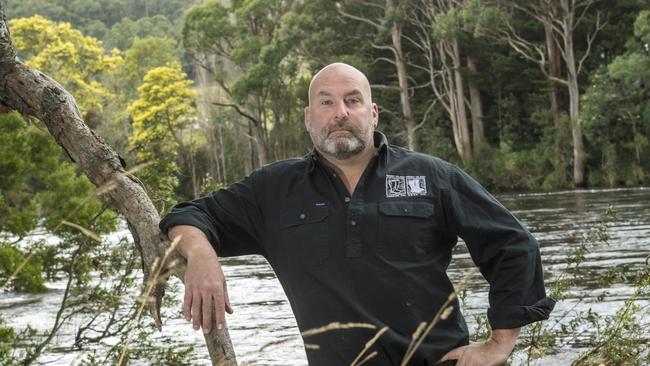
WHEN you’re renowned as one of Australia’s finest cheesemakers, how do you improve on that success?
For Nick Haddow, the founder and CEO of Tasmania’s Bruny Island Cheese, the answer was obvious: become a dairy farmer.
Since launching his cheese brand in 2003, the 45-year-old now oversees a company that produces 22 tonnes of award-winning cheese annually, in six core varieties, largely sold through an online cheese club of 26,000 customers. With a staff of more than 40 people, the business is not only involved in cheese production, but also a brewery, bakery, cellar door and tourism venture.
From this sound base, Nick branched into a new venture – Glen Huon Dairy Co – on his 40-hectare property at Glen Huon, with the first batch of milk going into production for cheese in September 2017.
“Cheese is obviously a product of agriculture, so all we are doing on the farm is producing cheese, not milk,” says Nick, who is the only legally recognised producer of cheese made from raw milk in Australia.
“For that reason I don’t care about yields, efficiency and productivity, or increasing margins at low cost,” he says. “It’s all about the quality of the milk, flavour, animal welfare and to what degree it represents a time and place.
“As a cheesemaker, my primary goal to make cheese is to reflect where it comes from. The greatest cheeses in the world, that stop me in my tracks, are those that are like a time capsule tethered to a location.”
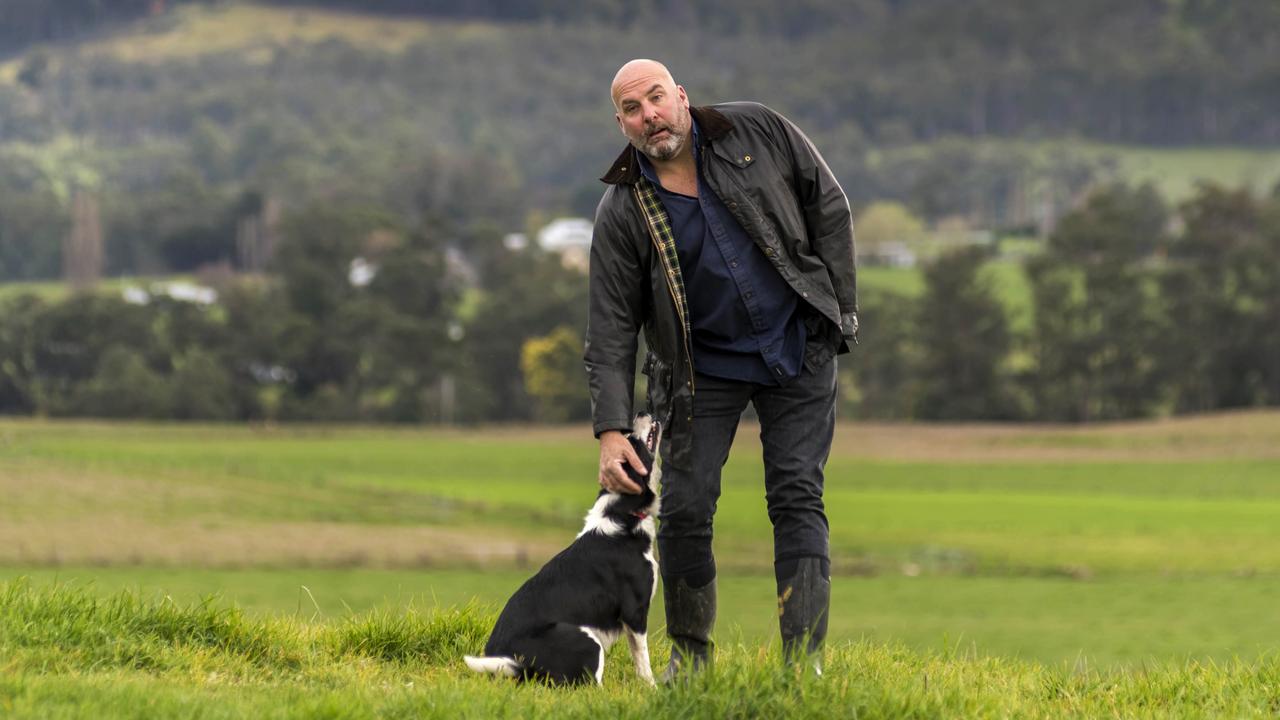
Given this ethos, Nick has created his dream dairy, and in doing so consciously veered in the opposing direction of conventional, commercial milk production.
The Glen Huon farm, 45 minutes northwest of Bruny Island, is one of Tasmania’s few organic dairies (with full certification expected in 2019), relying on largely native pastures, with low stocking rates.
The current herd of 55 cows – with plans to increase that to 75 by next year – is made up of three rare breed, dual purpose cattle: Australian Dairy Shorthorns, Normande and Brown Swiss, with all calves reared to be replacement heifers or grown out to be sold under the Glen Huon beef brand.
Unlike conventional dairies that join year-round to maximise production, the Glen Huon herd calves once a year in August, with a dry period from June to August.
“I’m not sure how that will effect production, ask me this time next year,” Nick says, with a laugh. “I’m a bit nervous.”
Nick built a 10-a-side herringbone dairy on his 40 hectares. He also leases another 60 adjacent hectares.
“It’s an unnecessarily big dairy, a calm and quiet place so both cows and people have a lot of space,” he says. “It’s pre-robotic, not intensive, like a dairy from the 1960s.”
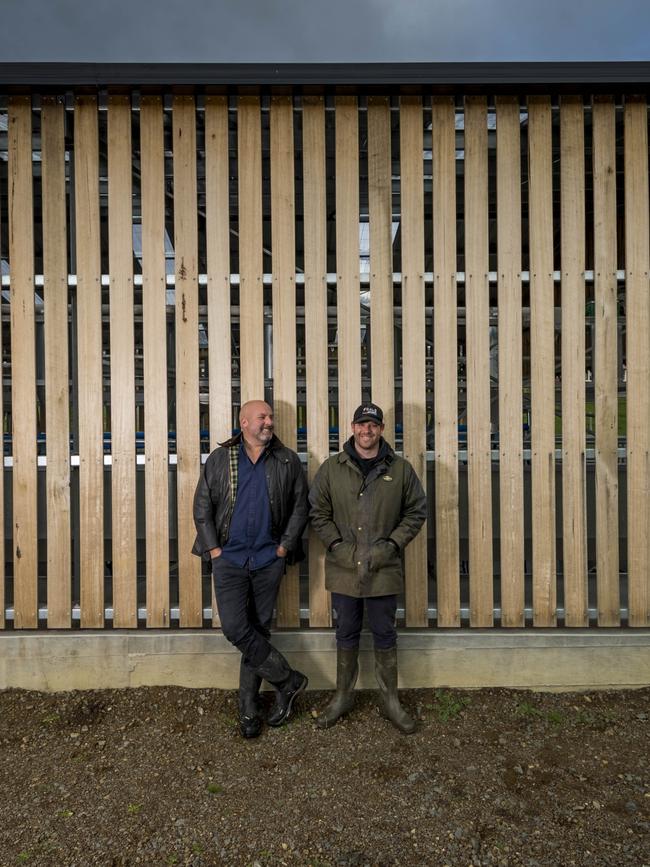
The herd is milked twice a day, or once as they begin to dry off, with average production at their peak about 22 litres per cow per day, butterfat of 5 per cent and protein of 3.7 per cent, as well as an “incredibly low” cell count of 74,000 cells/ml (and sometimes as low as 30,000). Cell count is an indicator of milk quality, with a cell count below 100,000 cells/ml ensuring no production loss from infection.
By next year Nick also hopes to move cheese production on to the Glen Huon property, with maturation continuing at Bruny Island.
So, do concepts such as cell counts, dairy infrastructure and stocking rates come naturally to a cheesemaker?
“Heck no,” Nick chuckles, adding that he is “well supported” by farm managers Richard and Karen Butler.
“We brought Richard and Karen over from the UK and I’m learning very fast from them.
“They have a lot of experience in running organic dairy farms and when we started there were only two organic dairies in Tasmania.”
Nick grew up in Adelaide and says he spent weekends and holidays on farms owned by family members, but studied hotel management. He specialised in cheesemaking, mentored by
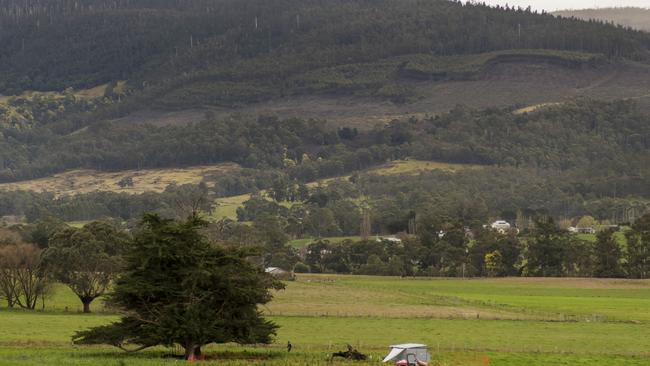
Australia’s Will Studd then working in Victoria’s Meredith Dairy and Milawa Cheese.
After Nick was awarded a Queen’s Trust Grant, he travelled to Europe to learn traditional cheesemaking, working at one of the world’s great cheese shops, London’s Neal’s Yard Dairy.
He has been a judge at the British Cheese Awards and New Zealand Cheese Awards and helped found the Slow Food movement in Australia.
And if that wasn’t sufficient, the father of two has had a high-profile media career including on SBS’s Gourmet Farmer – with his friend Matthew Evans – and has written several books, including his latest, Milk. Made, “a guide for making wise choices about the cheese you buy and eat at a time when real cheese everywhere is under pressure from industrialised agriculture”.
He says it was while writing Milk. Made that the penny dropped about running his own dairy farm.
“I always said no way would I be a dairy farmer. I’m a cheesemaker and they’re two different skill sets,” Nick says. “But I was writing the book and spending a lot of time overseas and I saw stunning examples of small-scale dairies.
“Most cheese is crap because it doesn’t reflect time and place. We remove native pastures and replace them with three or four grasses, we all use the same breed of cow, which are then artificially inseminated from the same genetic bank and the milk is then pasteurised and cheesemakers all use the same bacterial starter cultures.
“Every one of those choices is a step away from regional character and the cheese ends up being highly homogenised, pardon the pun. That is the opposite of what we are doing here.”
Nick launched Glen Huon Dairy with a crowdfunding campaign, hoping to raise $30,000 but instead fetching $200,000, with supporters now welcome to visit the farm – “an important but also pleasurable part of the operation”.
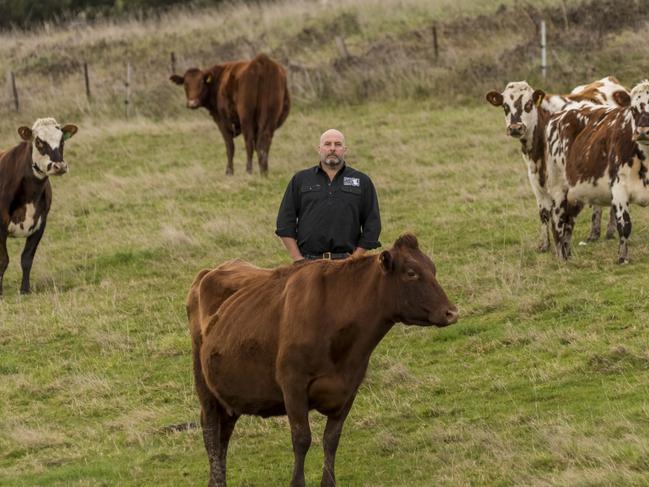
Glen Huon’s pastures have 11 species, especially birdsfoot trefoil, while an organic grain ration of up to 2kg a day is given to each cow in the dairy.
Nick leases 60 hectares from the family that runs Huon Aquaculture and has teamed up with them in a joint venture to create a compost facility that turns salmon waste, cow waste, old hay and sawdust from nearby timber mills into a dry-matter compost to add nutrients to the soil.
“It’s early days, we’re just about to start doing this, but we guess we’ll be applying 200 tonnes of dry matter a year to paddocks,” he says. So far the herd has been healthy and are given salt licks to top up nutrition.
Most of the farm’s Brown Swiss cows came from Island Rock herd in Pomborneit in Victoria. The Normande breed – synonymous with the best cheese in France, especially camembert – came from Allendale East in South Australia. And the Australian Dairy Shorthorn were sourced from the Mannes Dairy Shorthorn herd from Bendigo.
The herd follows a 45-day paddock rotation and Nick farms 100 chickens for eggs, that also clean up pastures after cows. This is in addition to his farms’ 35 mainly Wessex Saddleback pigs, which are fed spent grain from the Bruny Island brewery, as well as whey and left-over milk from the dairy. Pork will go into a range of smallgoods.
Nick says they have the luxury to make choices not available to many dairy farmers, including paying themselves an internal transfer price of $1.10 per litre.
“If you wanted to make money you wouldn’t start with a 55-head dairy in southern Tasmania,” he says. “It’s because we are value-adding that milk that we are financially sustainable. The reason we can do this is because we are cheesemakers first and foremost, not dairy farmers.
“Let’s be frank. It’s much easier and cheaper to buy milk from someone else. But it’s not about how cheap we can do it, but how good it is. It’s all about closing the gap between food and agriculture.”
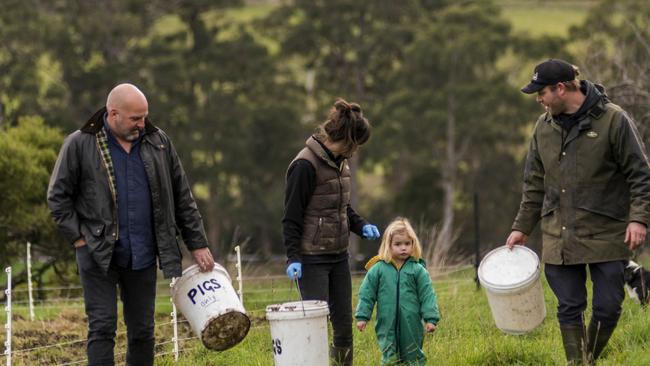
FARM FILE
GLEN HUON DAIRY
Nick Haddow founded Glen Huon Dairy last year to supply milk to Bruny Island Cheese. He rears 55 cows on 100 hectares northwest of Bruny Island. Crowdfunding raised more than $200,000 to fund building a 10-a-side herringbone dairy. Nick also raises 100 chooks for eggs and 35 pigs.
Where:
Glen Huon, Tasmania
More info:
brunyislandcheese.com.au
Nick Haddow is in the running to be The Weekly Times Coles 2018 Farm Magazine Innovative Farmer of the Year.
Visit theweeklytimes.com.au

